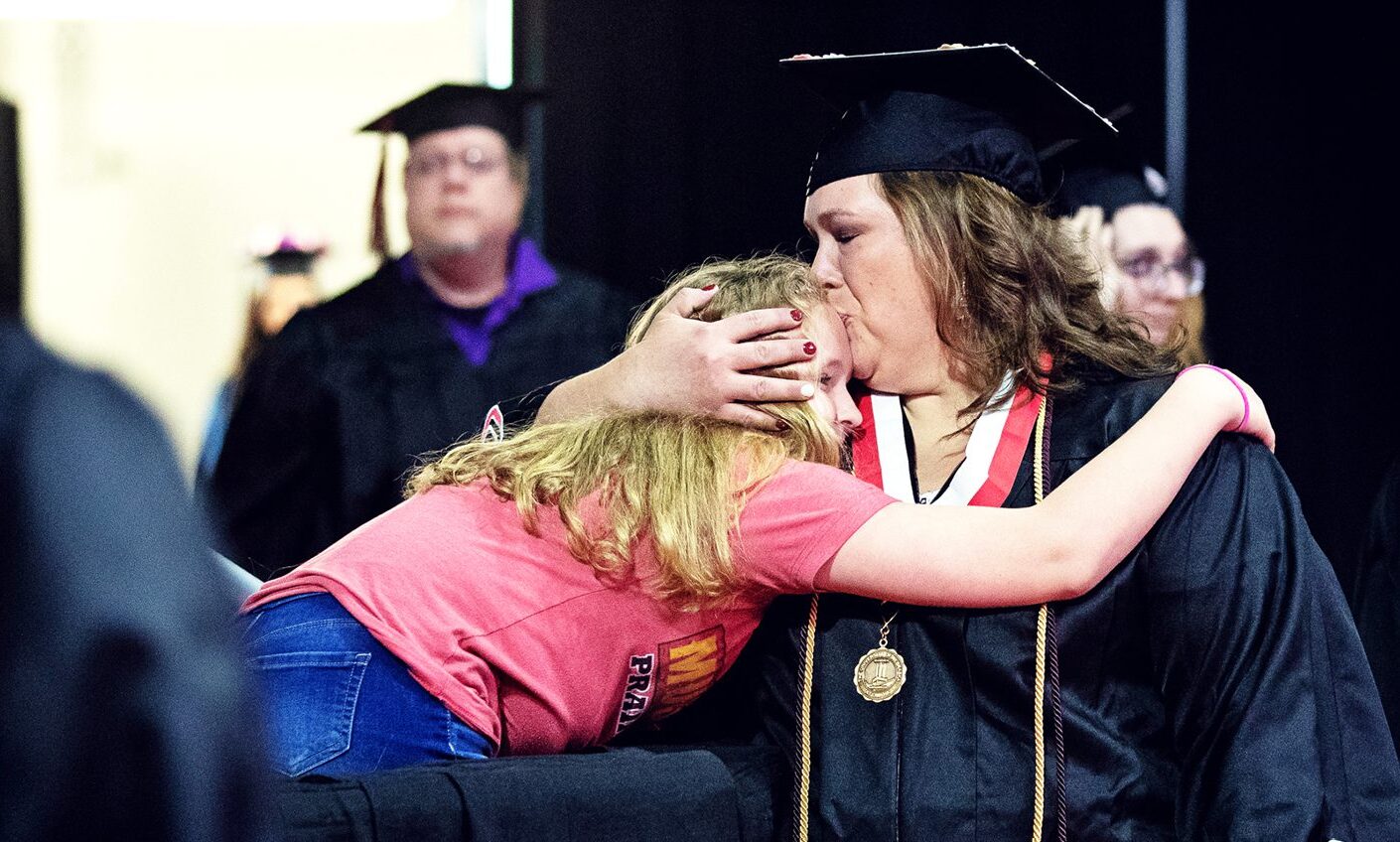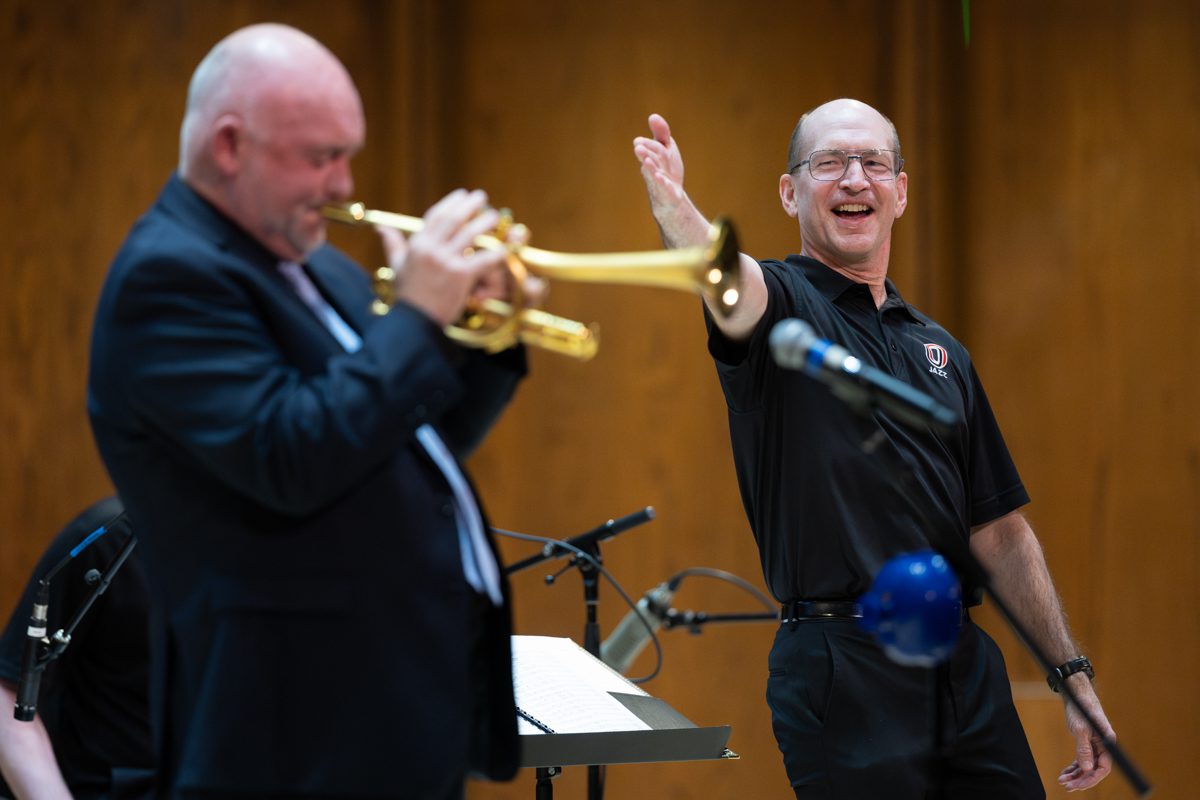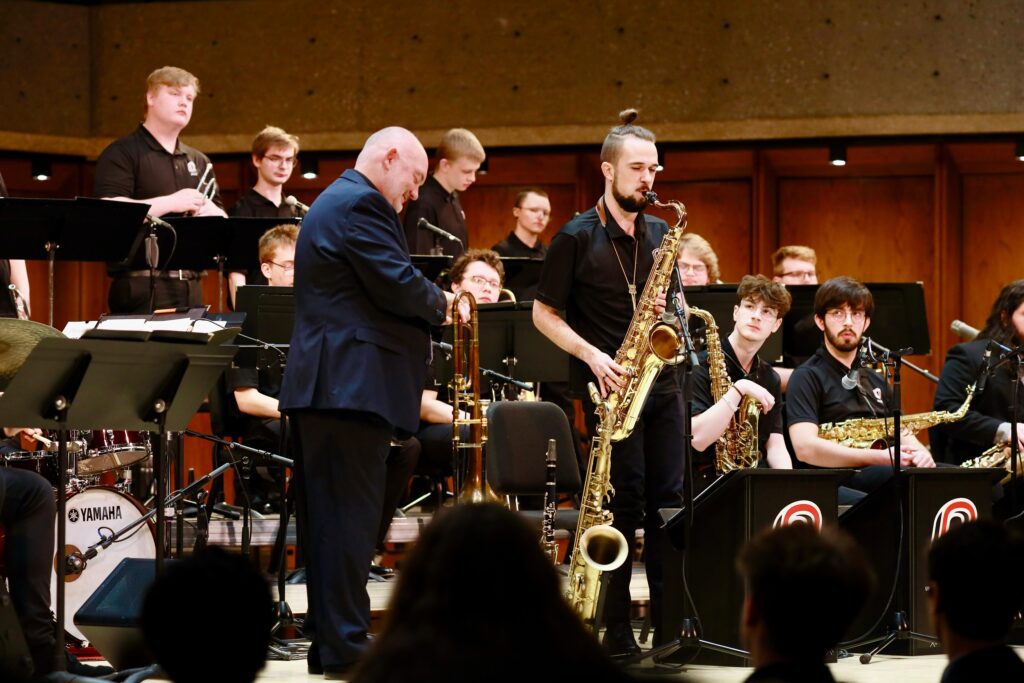
Gifts to this fund provide scholarship support for our general studies students, which includes adult education and our large military student presence.
The Division of Continuing Studies at the University of Nebraska at Omaha helps learners of all ages and stages in life pursue their educational goals and aspirations.
Often, nontraditional students can be overlooked when we think of the path to pursuing a college degree. Continuing Studies strives to be a central resource for these learners, helping no matter where they are in their educational journey.
“We always have wanted to meet learners where they are and then help them start or finish what they started,” Katie Sup Rezac, senior associate director of advising, outreach and engagement, said. “Our vision is to strive to do as much as we can for our learners, for the university, for the community by serving as a program of choice for adult learners.”
Every learner should get the same opportunity for success, no matter their aspirations. Through Continuing Studies, students meet with advisors to aid them in finding the best pathway to match their schedule.
“We call it FOIP: It’s fulfilling our institutional promise,” Sup Rezac said. “We have a strong belief that when we admit students to UNO, we are promising them that they'll graduate, and we're going to help them get to the end.”
Sup Rezac highlighted the diverse goals students have and the validity of everyone’s ambitions. She added that the goals of students within Continuing Studies often fall into different buckets, ranging from pursuing a degree or certification to simply pursuing knowledge and new skills.
“Both buckets are in lifelong learning and understand the value of education and what it means to them,” Sup Rezac said. “It’s just their end goal might be a little bit different.”
It can be intimidating to come back to college, but the Division of Continuing Studies strives to ease each student into it. That is why the division attempts to connect with the local community.
“[Our students] are our workforce in Omaha, and of course we have students all over the world, but the majority of students come from the Omaha area,” Sup Rezac said. “We engage with them to talk about what their needs are for employees, what they’re seeing with their current employees and maybe what degree programs we are missing or what our learners aren’t getting.”
The Division of Continuing Studies Fund for Excellence enables a greater impact on students by providing scholarships that offer the extra support needed for their success. Without this fund, meeting each student’s individual needs would be much more challenging.
“We are helping them pay down a balance or pay off a balance so they can start taking classes again,” Sup Rezac said. “A lot of times that’s the reason why students have to drop out is because they’re either not eligible for financial aid or they’ve met their max in financial aid, or they don’t take enough classes to qualify.”

Support the next generation of jazz musicians at UNO by making a gift to the UNO Jazz Area Support Fund today.
For 25 years, Pete Madsen has shaped jazz studies at the University of Nebraska at Omaha.
As area coordinator for jazz studies within the College of Communication, Fine Arts and Media, he has nurtured the talents of countless young musicians and expanded the jazz program into a nationally recognized organization.
“My goal has always been to create opportunities for students and bring world-class jazz to Omaha,” Madsen said. “I want students to experience the same excitement I felt when I was their age.”
One highlight of the jazz studies program is its annual Jazz Festival. The festival, which debuted in 1973, has grown into one of the premier educational jazz events in the country.
This year, 56 bands from Nebraska, Iowa, South Dakota and Missouri participated in the festival. Students had the opportunity to perform and receive expert feedback from top jazz educators and performers. The festival also featured professional musicians from New York, Los Angeles, Israel, Portugal, Poland and Australia.
“It’s about more than just playing music. It’s about learning, networking and seeing what’s possible,” Madsen said.



Donors play a vital role in the program’s success. The UNO Jazz Area Support Fund has allowed the festival to grow by bringing world-class talent to Omaha.
Recently, a generous philanthropic gift enabled the UNO Jazz Band to perform in Uruguay, leading to an invitation to play in Miami, Florida, with flutist José Valentino.
“Donor support creates a domino effect,” Madsen said. “It opens doors for our students and elevates our program.”
Beyond performances, donations also help fund scholarships, which are crucial for attracting top talent.
“We compete with other universities for the best students, and scholarships make a difference,” Madsen said. “We’ve been fortunate, but we still need more support to remain competitive.”
Madsen has big goals for the program, including getting the UNO Jazz Band to be selected for the prestigious Jazz Education Network Conference.
“Attending the conference would be a major milestone for us,” Madsen said. “It would show how far we’ve come and continue to raise our profile.”
Through his passion for jazz and dedication to his students, Madsen has built a thriving program at UNO. His students continue to pursue music careers, ensuring that the legacy of UNO Jazz will live on for years to come.
“When I see former students out in the world making music, it reminds me why I do this,” Madsen said. “This program changes lives.”
2285 South 67th St
Suite 200
Omaha, NE 68106
800-432-3216
[email protected]